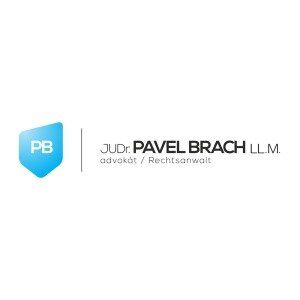Best Mining Law Lawyers in Czechia
Share your needs with us, get contacted by law firms.
Free. Takes 2 min.
Or refine your search by selecting a city:
List of the best lawyers in Czechia
About Mining Law in Czechia
Mining Law in Czechia regulates the exploration, extraction, processing, and transportation of mineral resources within the country. The legal framework is primarily established by specific mining statutes, related environmental laws, and various governmental regulations. Mining activities in Czechia range from coal and industrial minerals to more valuable resources such as precious metals. The legislation is set to ensure safety, environmental protection, and the proper management of nonrenewable resources, balancing both economic interests and the public good.
Why You May Need a Lawyer
Navigating Mining Law in Czechia can be complex due to the technical nature of mining operations and the strict regulatory environment. Legal advice is often needed in several situations, such as:
- Applying for mining licenses or concessions
- Resolving disputes with landowners or neighboring properties
- Compliance with environmental regulations and assessments
- Drafting and negotiating mining contracts
- Addressing liability for environmental damage or mining accidents
- Managing relationships with governmental authorities
- Amending or transferring mining rights
- Closure and rehabilitation of mining sites
- Foreign investment and cross-border mining operations
Local Laws Overview
The primary law governing mining in Czechia is Act No. 44/1988 Coll., the Mining Act, complemented by Act No. 61/1988 Coll. on Mining Activities and some parts of the Civil Code. These laws cover the conditions for exploration, permitting, operational safety, environmental impact, and closure procedures. Mining activities are subject to permits issued by the Czech Mining Office (Český báňský úřad) and, where relevant, environmental impact assessments. Operators must also comply with regulations on health and safety, waste management, water usage, and the reclamation of mined land. Violations can result in significant penalties or the suspension of mining operations.
Frequently Asked Questions
What minerals are regulated by Mining Law in Czechia?
The Mining Act covers the exploration and extraction of reserved minerals, including coal, ores, industrial minerals, and certain energy resources. Common minerals or construction materials may be subject to different regulations.
What permits or licenses are required to start mining operations?
Mining projects require exploration licenses followed by mining permits, both issued by the Czech Mining Office. Operators may also need additional permissions related to construction, environment, and land use.
Can foreign entities obtain mining rights in Czechia?
Yes, foreign individuals or companies can apply for exploration and mining permits, but they must comply with all Czech legal requirements and may be subject to additional scrutiny.
What environmental regulations apply to mining?
Mining operations must adhere to environmental laws, including Environmental Impact Assessments, waste handling, water management, and land rehabilitation obligations after mining ceases.
What are the main obligations for mining companies?
Key obligations include operating safely, minimizing environmental impacts, paying relevant fees and taxes, regularly reporting to authorities, and restoring mined land post-closure.
How are landowner rights considered in mining activities?
Landowners' rights are recognized, but mining interests can take precedence. Operators must compensate landowners for land use or damages, and in some cases, expropriation may be possible through official procedures.
What happens if there is an accident at a mining site?
Accidents must be immediately reported to the Czech Mining Office and relevant authorities. Investigations follow, and operators may face sanctions, liability for damages, or criminal charges if breaches of regulations are found.
Are there tax or royalty obligations for mining companies?
Yes, mining companies must pay various fees, royalties, and taxes based on the type and quantity of minerals extracted, as well as income and property taxes.
How can disputes related to mining be resolved?
Disputes can arise between mining companies, landowners, or governmental authorities. Resolution methods include negotiation, administrative proceedings, or formal litigation through Czech courts.
What is mine site reclamation and who is responsible?
Reclamation refers to restoring land affected by mining to its original or agreed-upon condition. The mining company is responsible for planning and funding reclamation as part of its legal obligations.
Additional Resources
For further information and guidance on Mining Law in Czechia, consider contacting or referring to:
- Czech Mining Office (Český báňský úřad)
- Ministry of Industry and Trade (Ministerstvo průmyslu a obchodu)
- Ministry of the Environment (Ministerstvo životního prostředí)
- Regional mining authorities
- Chamber of Commerce and industry associations for mining
- Environmental NGOs focused on mining issues
- Legal professionals specializing in mining and environmental law
Next Steps
If you are considering engaging in mining activities or are faced with a legal issue related to mining in Czechia, the following steps can help:
- Identify the nature of your legal question or problem
- Gather all relevant contracts, permits, and communications
- Consult with a lawyer or legal adviser experienced in Mining Law
- Contact the Czech Mining Office or other relevant authority for procedural information
- Stay informed about updates to mining and environmental legislation
- Seek advice early to avoid costly mistakes or regulatory breaches
For specialized assistance, it is strongly recommended to collaborate with a lawyer who understands both the legal and technical aspects of mining in Czechia. Early legal consultation can safeguard your interests, ensure compliance, and help you efficiently manage disputes or regulatory procedures.
Lawzana helps you find the best lawyers and law firms in Czechia through a curated and pre-screened list of qualified legal professionals. Our platform offers rankings and detailed profiles of attorneys and law firms, allowing you to compare based on practice areas, including Mining Law, experience, and client feedback.
Each profile includes a description of the firm's areas of practice, client reviews, team members and partners, year of establishment, spoken languages, office locations, contact information, social media presence, and any published articles or resources. Most firms on our platform speak English and are experienced in both local and international legal matters.
Get a quote from top-rated law firms in Czechia — quickly, securely, and without unnecessary hassle.
Disclaimer:
The information provided on this page is for general informational purposes only and does not constitute legal advice. While we strive to ensure the accuracy and relevance of the content, legal information may change over time, and interpretations of the law can vary. You should always consult with a qualified legal professional for advice specific to your situation.
We disclaim all liability for actions taken or not taken based on the content of this page. If you believe any information is incorrect or outdated, please contact us, and we will review and update it where appropriate.
Browse mining law law firms by city in Czechia
Refine your search by selecting a city.










